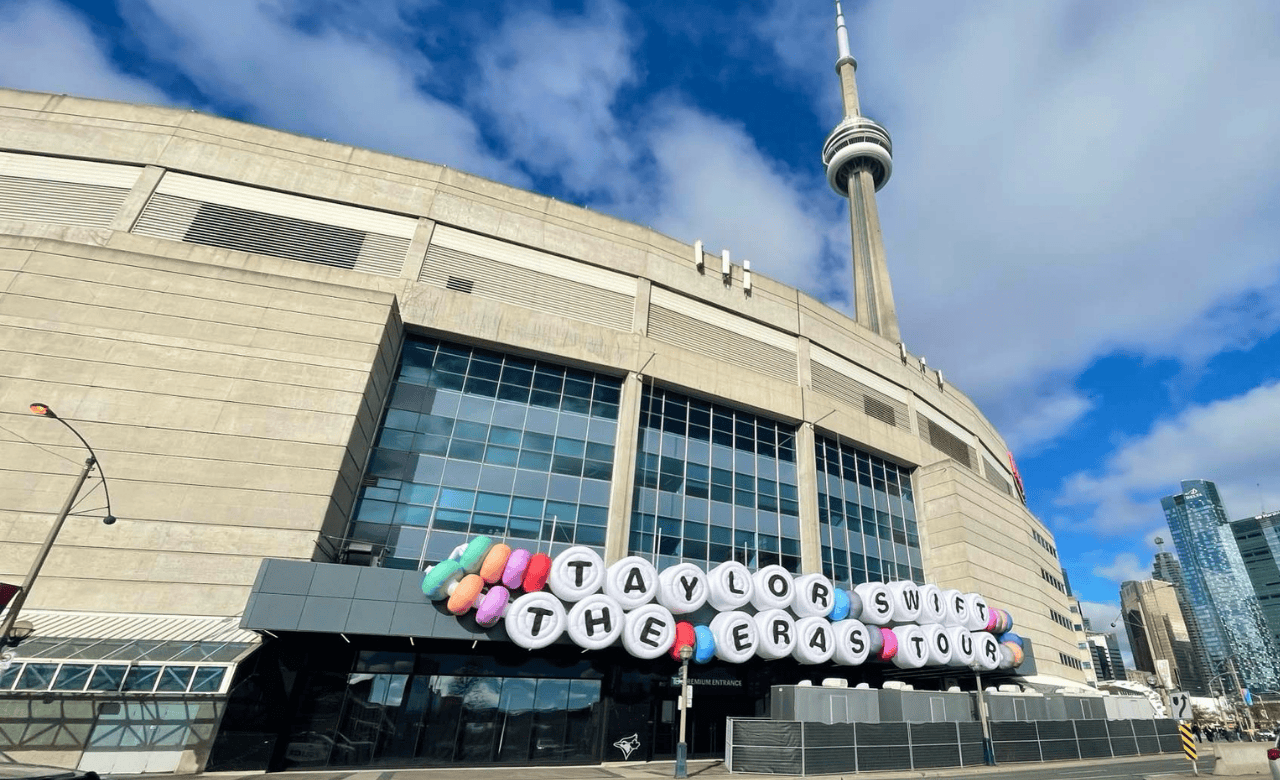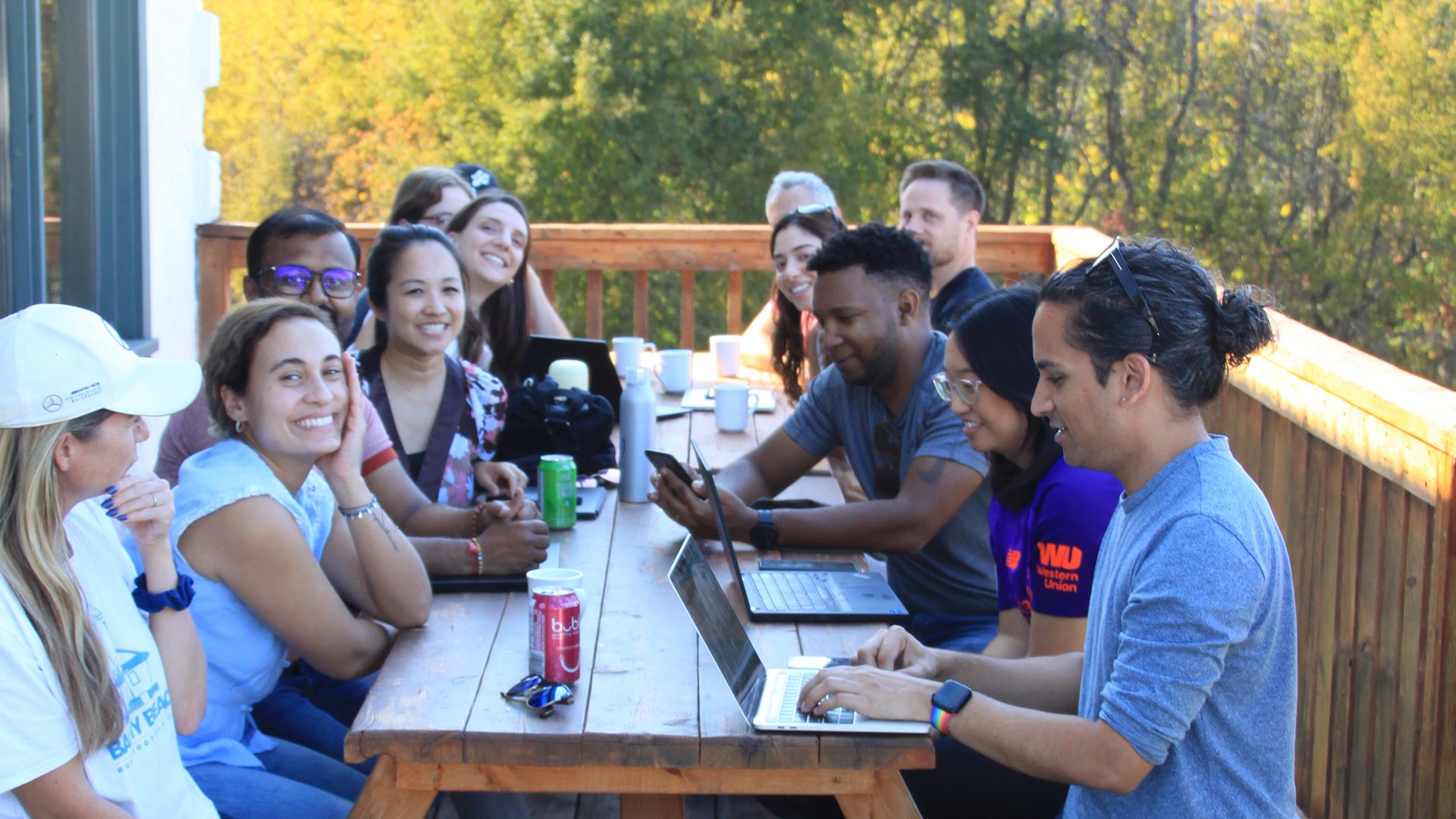What’s in store for 2024?
What’s in store for 2024?

Posted on: Thursday Jan 11th 2024
Article by: Tony Coulson
Reflections on key trends in 2023 and how they may shape the year ahead
ARTICLE BY
Tony Coulson,
Susan Seto,
Sarah Roberton &
Vijay Wadhawan
The news in 2023 featured high interest rates, cost of living shocks, horrific forest fires, wars, and an ongoing housing crisis.
All this on top the pandemic-era social trends that Environics has identified:
01
A malaise grounded in feelings of inefficacy and weakened social connections.
02
Strained relationships with their work, dampening engagement and weakening professional fulfillment.
03
Increased financial stress across the population, a trend that may linger with the generation coming of age now.
04
An increase in ecological fatalism: the feeling that the world’s environmental problems cannot be solved.
Not surprisingly, in view of all this, Canadians finished the year in a gloomy mood. Surveys conducted by our colleagues at the Environics Institute show that many Canadians are dissatisfied with the direction of the country, and growing proportions feel the economy and their own financial situation are getting worse. The cost of living is the top issue on people’s minds, concern about the availability of good jobs is creeping up, and the proportion of Canadians worried about their household debt is rising.*
Some of Canadians’ recent worries (such as post-pandemic malaise) are likely to be time-limited, while others may persist for years. To take stock of the landscape our clients will need to navigate, we reflected on some major trends from 2023 and how we expect them to play out in 2024.
Healthcare
The news in 2023 included many stories about the crisis in health care: overflowing ERs, doctor and nurse shortages, long-term care troubles and more. We expect healthcare to remain high on the public agenda in 2024, with increasingly negative perceptions of system performance.
The 2023 IRIS Network Public Confidence Study indicates that 60% of Canadians already view Canada’s health care system as deteriorating or in crisis. This sentiment may spread in 2024, as Canadians witness a system ever more stressed by the aging population as well as the aftermath of pandemic strains and resignations.
The same IRIS study also reveals that six in ten Canadians attribute the country’s healthcare crisis primarily to inefficient management, not a lack of funding, suggesting that spending announcements by governments in 2024 might not be enough to rebuild public trust. To effectively meet the healthcare needs of Canadians, some are calling for significant policy reforms and strategic initiatives to improve health care management as well as smart investments in health care infrastructure.
Housing
Canada’s housing situation will remain a top issue. Despite widespread motivation to address it, the crisis will be difficult to solve due to its complexity (public and private sector stakeholders, jurisdictional issues, etc.) as well as the long lead times required to create new homes. The cost of housing is high mainly because demand remains much higher than supply. Canada has opted to boost its labour force by accepting large numbers of immigrants each year and, as noted by CIBC economist Benjamin Tal, “None of them carries their house on their back.” While demand has grown, supply has been hindered by labour shortages, regulatory hurdles, and nimbyism, among other challenges.
An Environics Institute 2023 Focus Canada report explores the growing concern about housing affordability. The
survey finds
that younger Canadians have become more concerned about housing affordability, less optimistic about their prospects for home ownership and – for those who already own their own home – more worried about their ability to keep making their mortgage payments.
Research also shows there has been a
significant increase
in the belief that there is too much immigration to Canada, due in large part to a jump in the proportion citing concerns about how newcomers might be contributing to the current housing crisis.
With elevated interest rates and a growing population, expect housing to remain an issue for Canadians in 2024.
Democracy
Around the globe democracy seems to be at risk – from populists, “strong men,” military coups and dubious elections. Scan the headlines and you can’t miss the concern that 2024 will be a crucial test for democracy.
Politico:
“Democracy is in peril in the world’s bonanza year of elections”
The Economist:
“2024 will be stressful for those who care about liberal democracy”
What about in Canada? With a populist-leaning leader of the opposition and an unpopular Prime Minister who’s been in power for nearly a decade, how are Canadians feeling about the state of their democracy? For the most part, Canadians are trusting and
confident in Canada’s political system.
Six in ten believe votes are always counted correctly and fairly (and another third say sometimes), and seven in ten believe democracy is better than any other form of government. Only a minority think the rich regularly buy elections (15%) or that people should govern directly rather than through elected representatives (15%). Most have at least some trust in the federal government to do what is right; only one in five say they have no trust at all.
Climate
In 2023, the federal Liberal government – feeling the heat both politically and from worsening climate impacts – introduced an ambitious slate of policies to reduce emissions and get Canada to net zero. December alone saw a flurry of major announcements: an oil and gas emissions cap framework, a plan to cut methane emissions and targets for electric vehicle sales. These changes are designed to give Canadian industry the lead time and regulatory certainty they need to invest in change.
Our research has shown that Canadians also crave certainty: while recognizing a mix of policies is needed, they are most embracing of those they are confident will be effective at reducing emissions. For this reason, they tend to prioritize a clean energy transition, which they see as inevitable if we are to solve our climate problem.
The key uncertainty of 2024 in Canada is whether the federal Liberal government will survive to see these policies through – and what comes next if it doesn’t.
Politics
Despite trailing in the national polls, Prime Minister Trudeau seems determined to run in a fourth national election, citing work that remains to be done. Having won only a minority in the 2021 elections, the PM entered a “supply and confidence agreement” with the NDP. As a result, the timing of the next election – and potentially its outcome – may depend on the NDP’s appetite to continue working with the Liberals.
Environics Social Values surveys reveal an important change in the mental postures of NDP and Liberal supporters since 2015 when PM Trudeau first won power. In our 2016 survey (taken a few months after the 2015 election), those who had voted NDP were relatively close to Liberal voters in terms of their overall social values. By 2023, however, the voter pool for each party had changed and a values gap had opened between NDP voters and Liberal supporters. Compared to Liberals, NDP supporters have become more idealistic, open-minded, and more inclined to reject what they consider to be outdated institutions or norms. In addition to scoring high on the value Rejection of Authority, NDP supporters also stand apart on Civic Engagement – the belief that active involvement in the political process can make a difference in society and rejection of the notion that inequities in society are inevitable and should be expected.
As 2024 unfolds, it will be interesting to see if the Liberal-NDP agreement holds up despite the expanded values differences between supporters of the two parties. And how might this values gap affect the outcome of an election triggered by the unravelling of the agreement?
Artificial Intelligence (AI)
While AI has existed for decades, 2023 was the year this technology exploded into the public conversation – spurring both excitement and anxiety. Since OpenAI released an astonishing demo of ChatGPT in late 2022, the news has been filled with predictions of AI changing everything: product innovation, health care, investing, media – you name it. While some observers focused on potential up-sides, others asked hard questions about AI governance, emphasizing that guardrails were needed to ensure this powerful technology is used for good and that it doesn’t (to name critics’ most extreme concern) lead to human extinction. The hopes and concerns of publics, governments, technologists, and corporations have all been aired (with scheming conversations among bad actors presumably proceeding in less public forums) as everyone has struggled to understand this mother of all double-edged swords.
While some Canadians may tune out these conversations, struggling to imagine the implications of AI, overall the public is wary of this technology and its impact. Our data show that Canadians doubt developers are doing enough to ensure AI advances in an ethical and socially sustainable way. Trust in machines and AI itself (over human judgement) is even lower than trust in the tech’s creators and has diminished over the past four years. Canadians want tech companies to be held to account for their practices and their impact on society. Taken together, these public sentiments suggest a strong public appetite for guardrails around AI’s development and usage – particularly as its power and prevalence grows. We expect the desire for strong oversight to continue rising in 2024.
One major area of uncertainty is the extent to which AI will drive job losses by efficiently performing tasks currently done by humans. The pace of change has employers and employees alike scrambling to determine the right balance of human and machine activity. In 2024, we expect organizations to continue debating the best place for AI in operations and strategy. One area of broad agreement seems to be that organizations should consider which roles only humans can perform – for example, those requiring empathy, personal interaction, and genuine creativity. Refocusing on the human element of the work organizations do may help companies find a wise path: making smart use of AI while enabling their people to thrive and develop in the areas in which humans excel.
In the year ahead, we can expect AI to be much more than a tech story – shaping conversations on many of the topics raised here, from healthcare access to climate change solutions. At the same time, public concern about this technology will present governments with the imperative to establish clearer parameters for the use of AI, limiting its potential harms without stifling innovation.
Happy new year?
Some of the factors that led to a gloomy end to 2023 may be letting up. Inflation, for example, seems to be easing. Yes, Canada still faces serious challenges, including major health care and housing concerns. But Canadians continue to express reasonable faith in the democratic systems we use to confront such challenges. And federal action on climate (however belated and imperfect critics might call it) is a case of democratic will being expressed: the public expresses a strong desire for measures to reverse alarming environmental trends. Perhaps as post-covid social malaise continues to recede, Canadians will find themselves reengaging with friends and neighbours and discovering reasons for optimism in day-to-day local life.
Let us know in the comments: do you think the public will end 2024 in a better mood than the one that ushered out 2023?
In the meantime, at the very least, we can wish each other a happy new year!
* Michael Adams and Andrew Parkin, “The mood was bleak in 2023, but fret not – we’ve been here before,”
The Globe and Mail.
Tags:
More Articles

Social Values
What Taylor Swift Era Are You In?
11/15/24
Laura Coelho

Segmentation
Exploring the Hidden Side of Patient Safety
11/01/24
Vijay Wadhawan

Thought Leaders
The Art and Science of Research: How ADHD Shaped My Unique Approach to Market Research
10/23/24
Vijay Wadhawan


